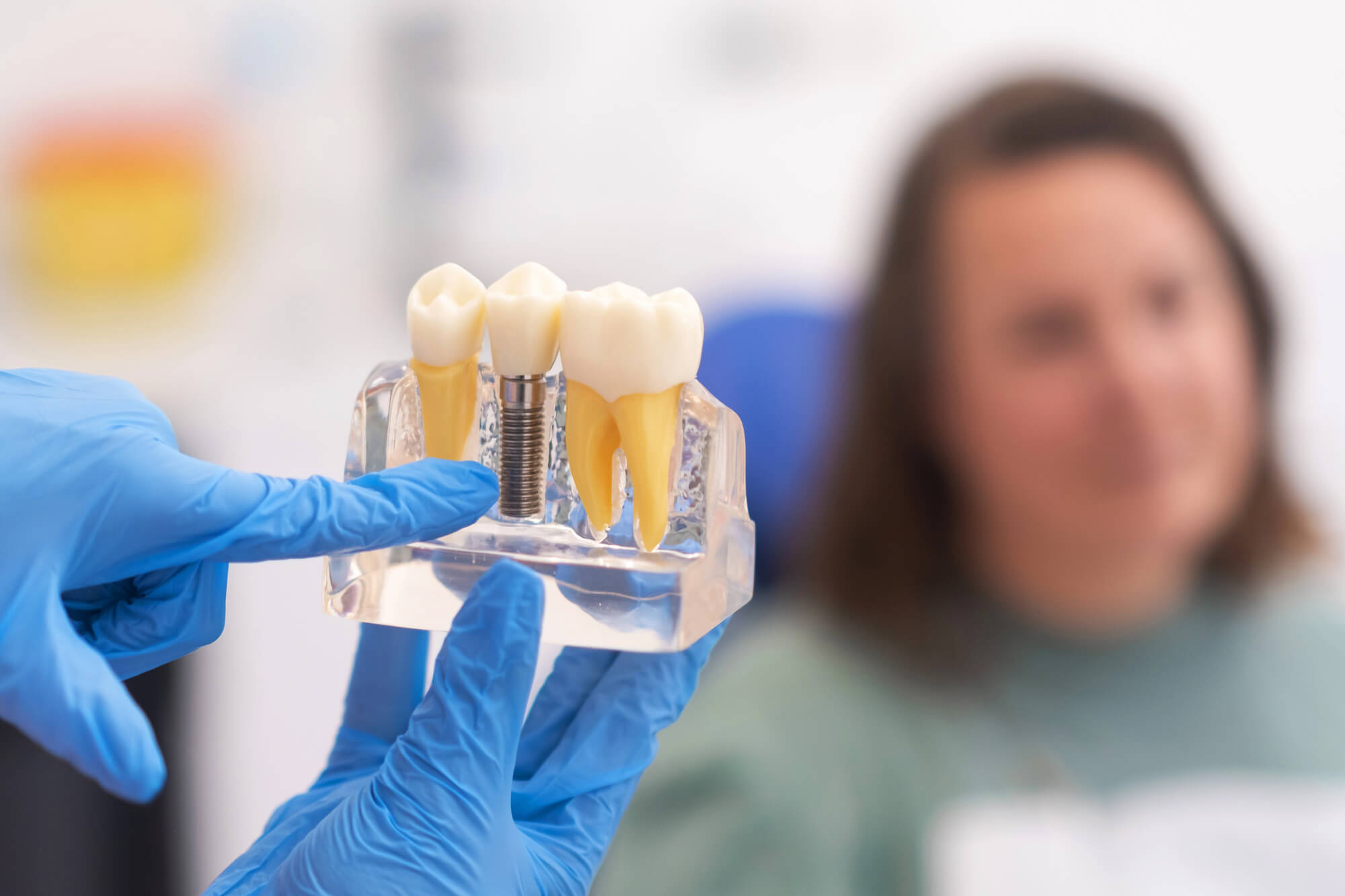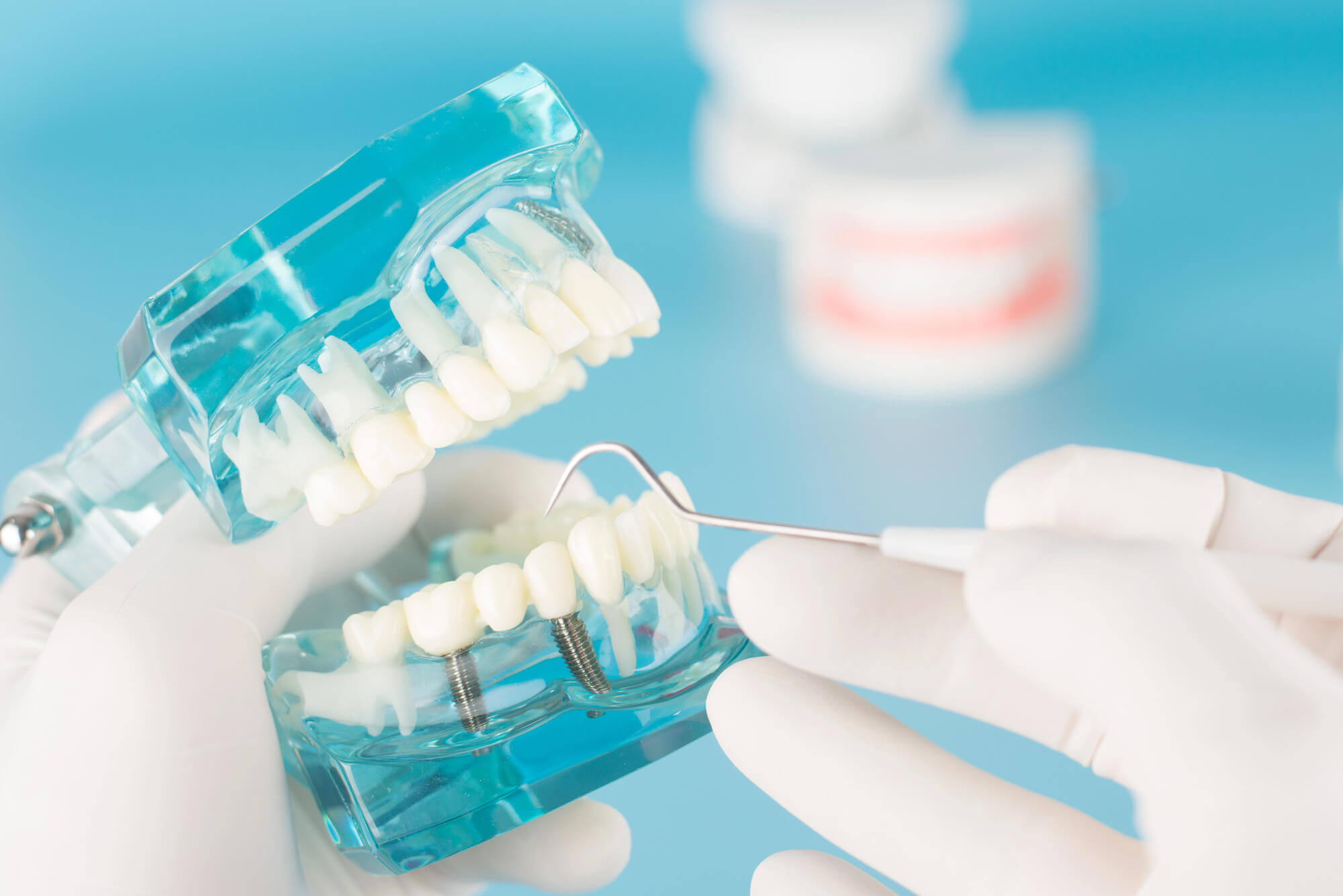
Dentistry has advanced significantly over the years, especially in tooth replacement techniques. What was once limited to dentures and bridges has evolved into highly sophisticated implant technology.
Dental implants have changed modern dentistry by offering a stable, natural-feeling alternative to missing teeth. Unlike traditional methods, implants support jawbone health, restore function, and improve long-term oral well-being.
As technology continues to advance, dental implant restorations have become the preferred choice for patients and professionals alike.

Traditional Methods of Replacing Missing Teeth
Before dental implants, people had limited options to restore missing teeth. While these methods provided functional improvements, they also had drawbacks that affected comfort and long-term health.
1. Removable Dentures
Dentures have been a widely used method for tooth replacement, but they come with challenges:
- Lack of Stability – Dentures can shift while eating or speaking, making them uncomfortable.
- Bone Loss – Without natural tooth roots, the jawbone deteriorates over time, leading to changes in facial structure.
- Chewing Limitations – Many denture wearers find it difficult to eat certain foods.
2. Fixed Dental Bridges
Bridges involve anchoring an artificial tooth to adjacent natural teeth. While more secure than dentures, they also present issues:
- Altering Healthy Teeth – To place a bridge, the supporting teeth must be reshaped, which weakens them.
- Bone Shrinkage – Like dentures, bridges do not provide stimulation to the jawbone, causing gradual bone deterioration.
- Limited Lifespan – Bridges must be replaced every 10-15 years, requiring ongoing maintenance.
Although these methods helped patients regain function, they did not prevent bone loss or fully restore oral strength. Dental implants changed that.
How Dental Implants Transformed Modern Dentistry
Dental implants have redefined tooth replacement by providing long-term benefits that traditional restorations could not offer. The implant structure closely mimics a natural tooth and consists of:
- A titanium post surgically placed in the jawbone to act as an artificial root.
- An abutment that connects the implant to the prosthetic tooth.
- A custom crown, bridge, or denture designed to match the surrounding teeth.
1. Stability and Strength
Unlike dentures that rest on the gums or bridges that rely on adjacent teeth, implants anchor directly into the jawbone. This creates a firm foundation, allowing patients to eat, speak, and smile without concern.
2. Jawbone Preservation
Dental implants stimulate the jawbone, preventing the bone loss that typically follows tooth loss. This helps maintain facial structure and prevents the hollowed appearance often seen with prolonged denture use.
3. Long-Term Reliability
While traditional restorations require replacements over time, implants are designed to last decades or even a lifetime with proper care.
4. Protecting Adjacent Teeth
Unlike bridges, implants do not require modifying healthy teeth. This preserves the strength and integrity of surrounding teeth, reducing the risk of decay or weakening over time.
5. Natural Appearance
The crown, bridge, or denture attached to an implant is custom-made to match the surrounding teeth in shape, size, and color, making it nearly indistinguishable from natural teeth.

Want To Learn More About Dental Implant Restorations?
As dentistry evolves, dental implant restorations continue to set the standard for tooth replacement. They provide unmatched stability, longevity, and health benefits that surpass traditional methods. With advancements in implant technology, more patients can experience the lasting benefits of a fully restored, functional smile.
If you’re considering dental implant restorations, let our expert team at Bonnie & Simone guide you through the process. Schedule a consultation today to explore how implants can improve your smile, confidence, and overall well-being.



